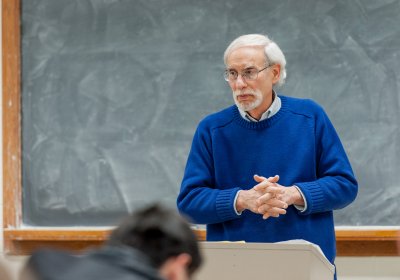The history of lung capacity: Racialisation and dissent
In the last two years, activists in the US, primarily medical students and then later junior faculty, have shed light on the pervasiveness of racialisation of medical algorithms. Race-based algorithms, such as those to estimate kidney function, vaginal birth after caesarian section and pulmonary function as well as many algorithms used in the field of cardiology are indicators of just how deeply racialised Western medicine is in its theories, practices and knowledge production. While most of these algorithms were developed in the US, pulmonary function tests, “corrected” by race have long been global.
Generally ascribed to “structural racism,” there has been little in-depth attention to why “race” was so widely incorporated into medical algorithms and the material processes by which this worked. In other words, what is the epistemological framework by which racism works together with class, gender, and ableism under the guise of “objective” and “normal” science?
In March 1999, the Baltimore Sun published a column on the consequences of “race correction” for workers in the asbestos industry. Recounting a legal battle in a huge asbestos case over eligibility for compensation, the article asked how much lung damage, as assessed by the spirometer, did former workers have to manifest from asbestos before they could be compensated by the industry? In some mining contexts, spirometric measurements can be the determining factor for compensation. The idea of racial differences in lung function stems from the writings of Thomas Jefferson. Ultimately codified in 1974 in an algorithm published by UK researcher Charles Rotimer and US researcher Hans Weill, the race-based algorithm was built into spirometers globally for approximately four more decades.
Tracking the very few efforts to dissent from mainstream views of innate racial difference that has informed respiratory theory, practice and knowledge production, this talk examines the terms of dissent over time and ask why racialisation of pulmonary functions tests has been ignored for so long.
Speaker
Lundy Braun is a Professor of Africana Studies and Pathology and Laboratory Medicine/Alpert Medical School of Brown University and a member of the Science, Technology, and Society Program. She received her PhD from the Johns Hopkins Bloomberg School of Public Health. Her research analyses the historical role of science in the production of racialised knowledge and racial hierarchies. She has participated in national and international workshops on race, imperialism, genetics, and health and has also been a recipient of a Professional Development Award from the National Science Foundation; a Fulbright Senior Specialist in Public Health at the University of Cape Town, South Africa; and a Scholar Award from the National Science Foundation.
Braun has also organised an ongoing interdisciplinary Research Cluster on Race, Medicine, and Social Justice at the Center for the Study of Slavery and Justice at Brown University for the past six years. Her book Breathing Race into the Machine: The Surprising Career of the Spirometer from Plantation to Genetics won the Ludwig Fleck Award 4S Society, 2018 and Honorable Mention for the Rachel Carson Prize in 2017 from The Society for Social Studies of Science.
Please note that the recording link will be listed on this page when available
Admission
Contact



